Chief constable says PSNI 'will uphold parade ruling'
- Published
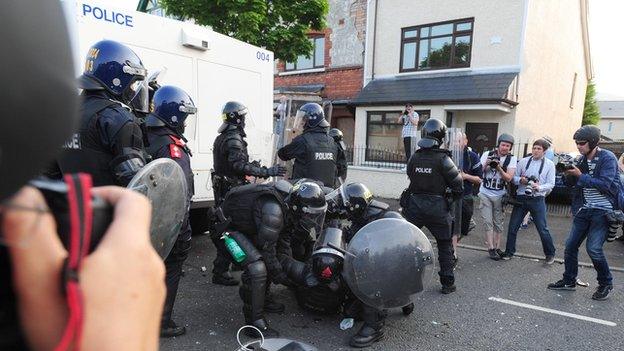
Police were attacked by loyalists in the Woodvale area of north Belfast on 12 July 2013 after the same parade was restricted last year
Northern Ireland's new chief constable has said his officers will enforce a controversial parade ruling as it was their job to "uphold the rule of law".
George Hamilton was speaking after the Parades Commission barred an Orange Order march from returning along part of Belfast's Crumlin Road on 12 July.
He also warned young people they risked arrest if they got involved in any violence linked to the ruling.
On Thursday, unionist parties walked out of talks in protest at the ruling.
The road separates unionist and nationalist communities in north Belfast and it is the second year in a row that the commission has ruled against the return leg of the 12 July parade marching along the route.
Northern Ireland's First Minister Peter Robinson said the devolved institutions at Stormont had been put under threat by the latest Parades Commission determination.
The Democratic Unionist Party (DUP), the Ulster Unionists, the Traditional Unionist Voice (TUV), Progressive Unionist Party (PUP) and Ulster Political Research Group (UPRG) issued a joint statement in response to the Parades Commission's decision on Thursday.
They claimed that the commission had rewarded "republican threats of violence".
In recent years, there has been serious rioting on 12 July in the mainly nationalist Ardoyne area when the parade was allowed to return along the route and scores of police officers were injured as a result.
When the Parades Commission ruled against the return leg last year, loyalists attacked police at the point where the parade was brought to a halt, and again, several officers were hurt.
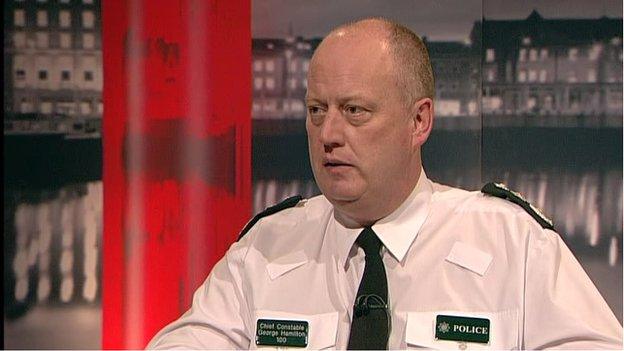
PSNI Chief Constable George Hamilton warned young people they risked arrest if they become involved in any violence linked to the north Belfast parade ruling
Speaking on BBC Northern Ireland's The View, Mr Hamilton said: "In the middle of all this we need to be clear about the role of the police, which is to keep people safe, to uphold the rule of law, and in the context of this conversation, upholding the rule of law is us upholding the determination of the Parades Commission."
The chief constable, who took up his new role four days ago, said he was reassured by calls from Northern Ireland's five main political parties for no violence following the march ruling.
Mr Hamilton said that since December 2012, when protests began over a vote to limit the number of days the union flag is flown at Belfast City Hall, almost 700 people have been arrested, charged or reported over offences linked to the protests.
The chief constable said they were mostly young people who now had criminal records.
"The role of the police is to uphold the rule of law, uphold the determination. Where people breach that, when they become offenders, it's our job to collect evidence, where appropriate to arrest them, to collect evidence, take it to the prosecutor and ultimately then they end up before the court.
"We don't want to do that with our young people, but actually, people have choices to make here. Groups, families, communities have choices to make about how people are going to behave on the streets over the next two weeks," Mr Hamilton said.
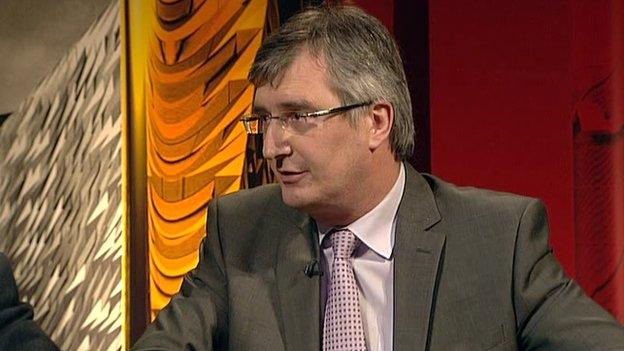
Ulster Unionist MLA Tom Elliott told The View that he "certainly wouldn't call people out on to the streets" but added that protests could take different forms
The joint unionist statement said there would be a "graduated unionist response" to the parade ruling.
Tom Elliott, from the Ulster Unionists, told the programme that he "certainly wouldn't call people out on to the streets" and added that protests against the parade ruling did not necessarily entail street demonstrations.
Mr Hamilton said he welcomed the fact that DUP representatives had called for any protest over the parade determination to be "lawful and peaceful".
He also acknowledged Mr Elliott's comments that the Ulster Unionists were not calling protesters on to the streets.
- Published4 July 2014
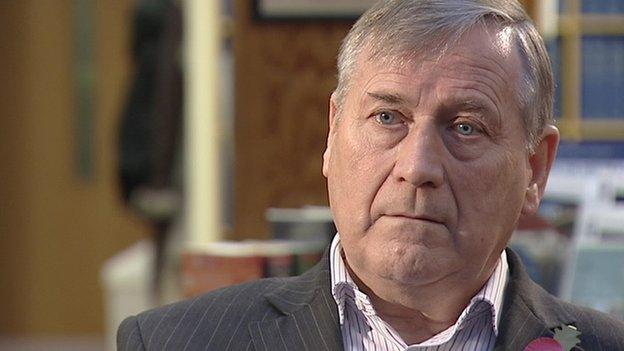
- Published3 July 2014
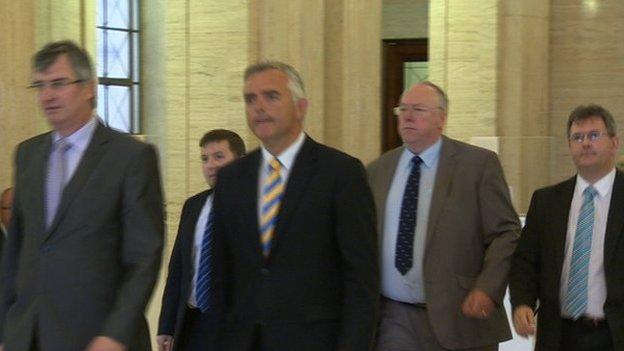
- Published3 July 2014
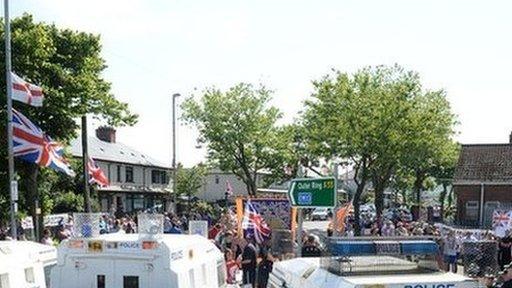
- Published3 July 2014